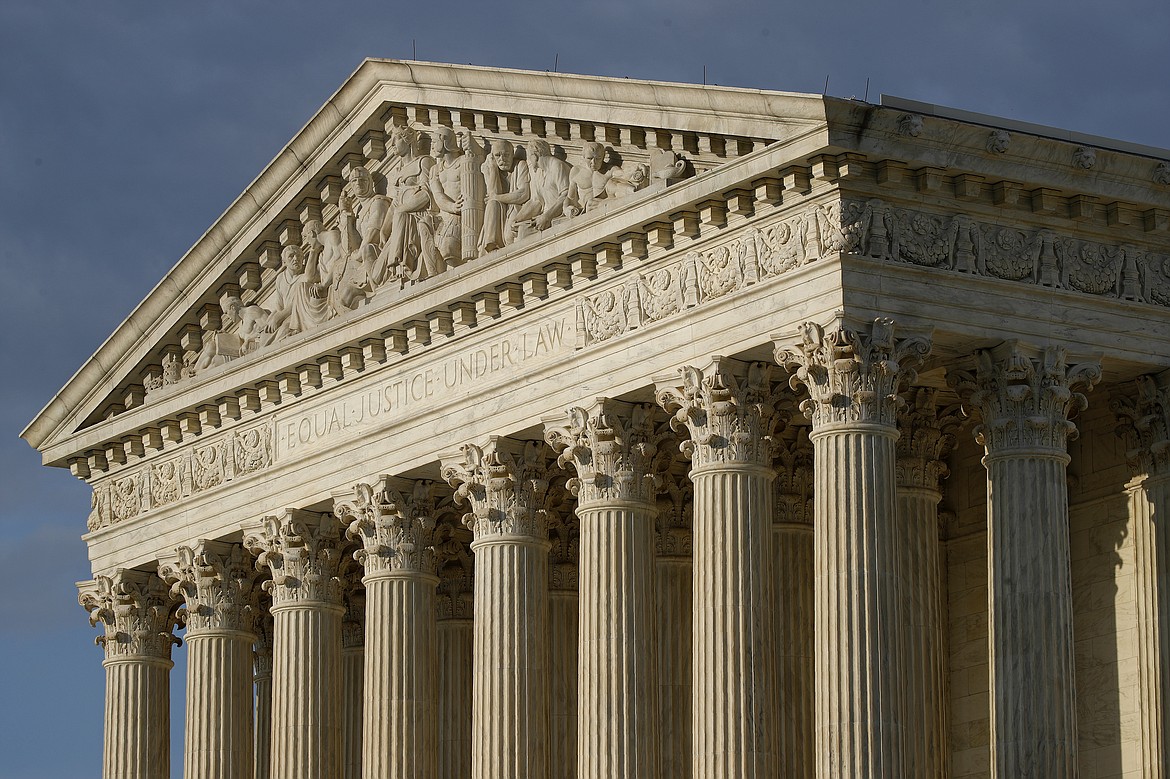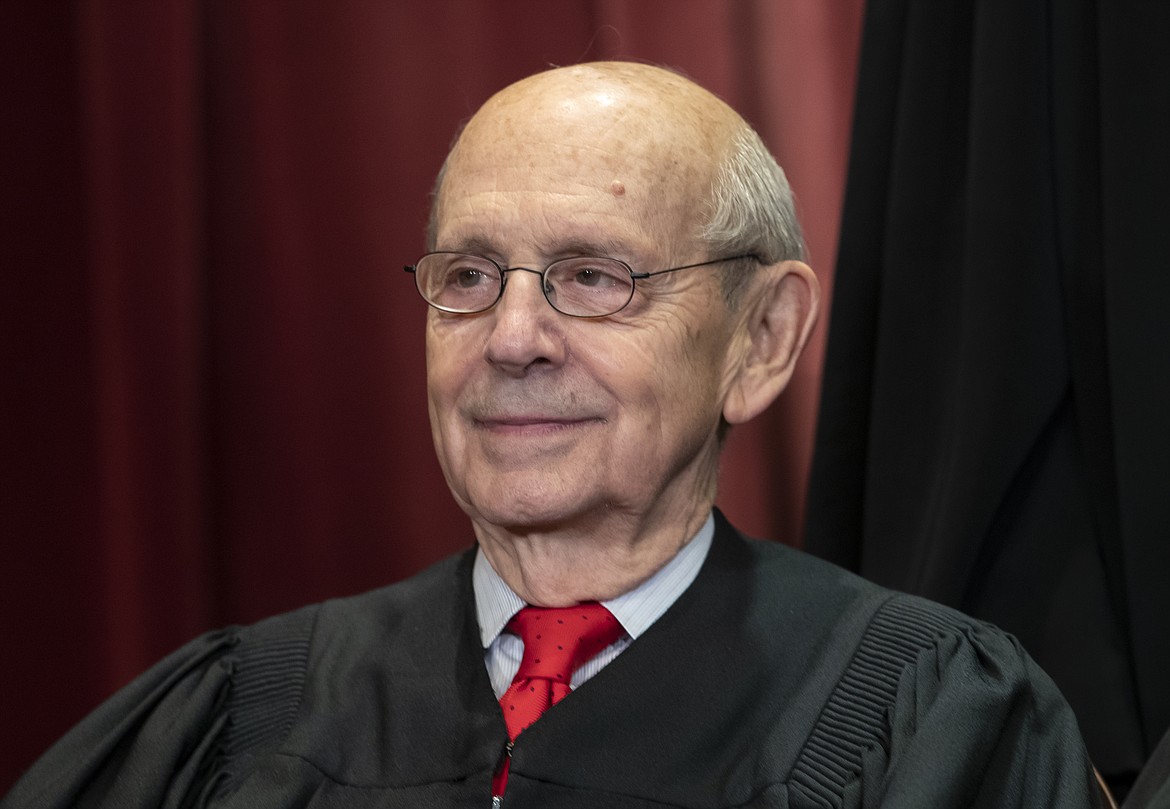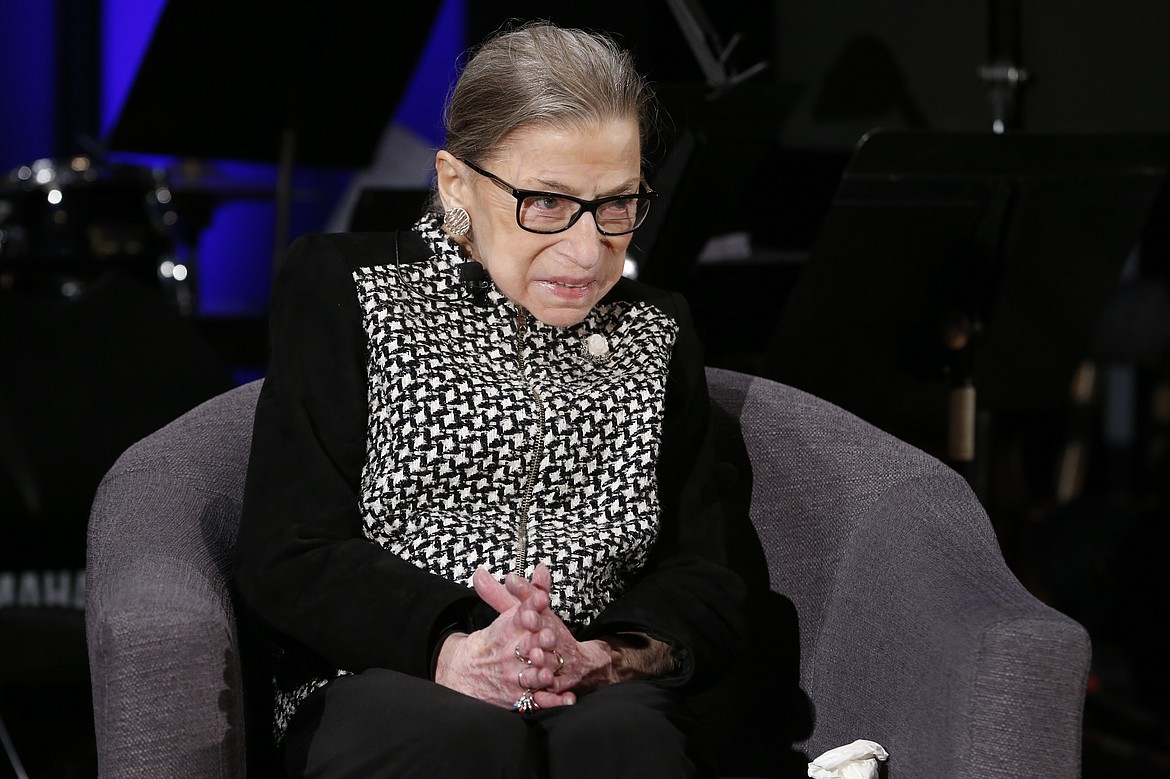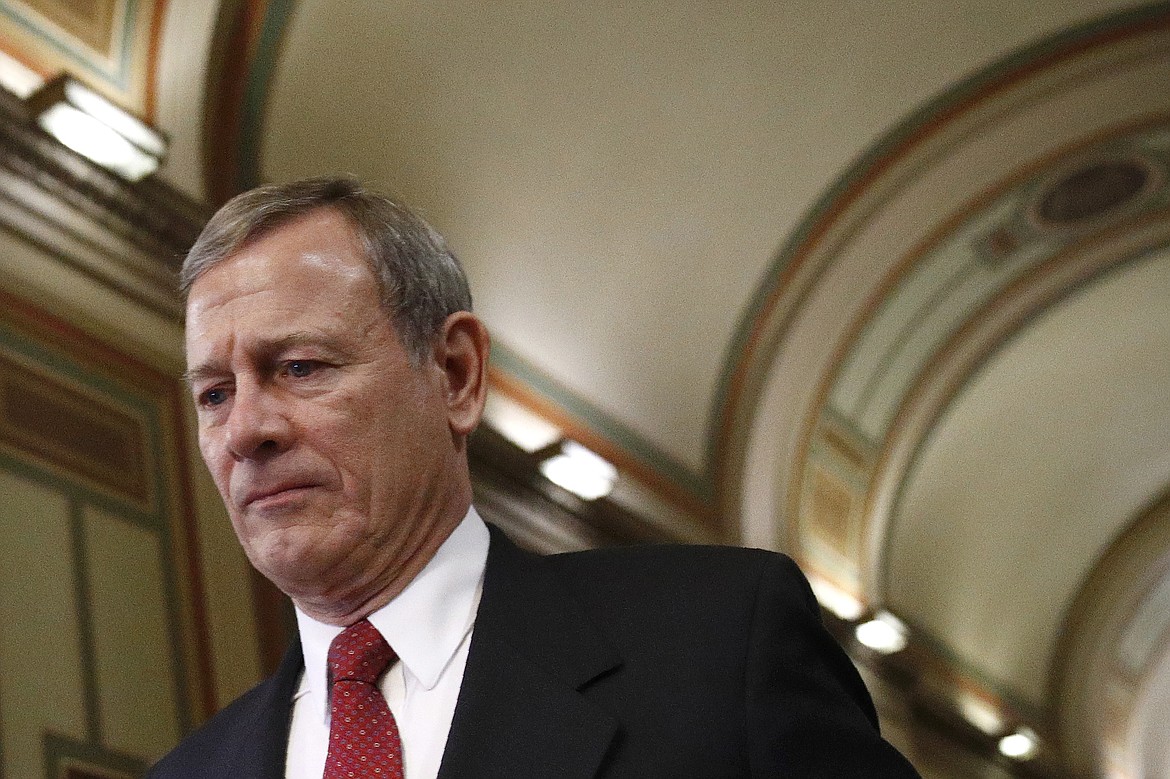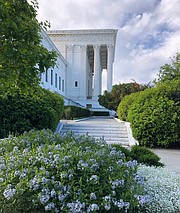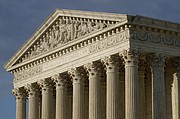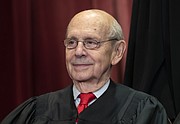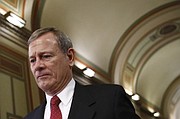Justices hear argument in NY Trump tax case
WASHINGTON (AP) — The Supreme Court is holding its second week of arguments by telephone because of the coronavirus pandemic, hearing cases about President Donald Trump’s tax records, with audio available live to audiences around the world.
The court has heard four days of arguments that had been postponed because of the virus outbreak and has two more days to go. Decisions are expected by early summer.
Some observations, trivia and analysis from our Supreme Court reporters (all times local):
Noon
The Supreme Court has begun hearing its second phone argument of the day, this one about a Manhattan district attorney’s office subpoena seeking financial documents from President Donald Trump.
Trump is fighting subpoenas by Congress and prosecutors as he seeks to shield his tax, bank and financial records. Earlier Tuesday, the Supreme Court heard arguments about the congressional effort.
Rulings against Trump could result in the release of information during his campaign for reelection.
In Tuesday’s first case, the justices asked whether there is any limit to Congress’ ability to subpoena records related to the president. Justice Sonia Sotomayor told Trump’s lawyer “there is a long, long history of Congress seeking records and getting them ... from presidents.”
The court is hearing the arguments by phone because of the coronavirus pandemic. Live audio is available.
–––
11:30 a.m.
Supreme Court justices are asking whether there is any limit to Congress’ ability to subpoena records related to the president.
The Supreme Court is taking up President Donald Trump’s bid to shield his bank and financial records from Congress. Several justices want to know whether there’s a limit to ensure subpoenas aren’t used to harass the president.
Justice Ruth Bader Ginsburg asked a lawyer arguing Tuesday on behalf of the House of Representatives: “The concern has been expressed that Congress could be using this subpoena power to harass a political rival ... so what is the limiting principle?”
Justice Brett Kavanaugh is one of Trump’s two nominees to the court. Kavanaugh asked the lawyer for the House: “The question then boils down to how can we both protect the House’s interest in obtaining information it needs to legislate but also protect the presidency. How can the court balance those interests?”
Trump is fighting subpoenas by congressional committees and Manhattan prosecutors for tax records. The court is hearing arguments by phone because of the coronavirus.
–––
10:40 a.m.
Financial records involving President Donald Trump are at issue in the cases the Supreme Court is hearing in telephone arguments. But some of the justices are bringing up past presidents.
Justice Sonia Sotomayor on Tuesday told Trump lawyer Patrick Strawbridge: “Counsel, there is a long, long history of Congress seeking records and getting them ... from presidents.”
Justice Ruth Bader Ginsburg and Justice Steven Breyer have brought up requests for documents during Watergate and Whitewater. Justice Elena Kagan says in the past Congress and the president have been able to come to agreements.
Trump is asking the justices to put an end to subpoenas issued by congressional committees and the Manhattan district attorney for tax, bank and other financial records. Rulings against the president could result in the release of information during Trump’s campaign for reelection.
The court is hearing the arguments by phone because of the coronavirus pandemic. Live audio is available.
–––
10 a.m.
The Supreme Court has started Day Five of the arguments it’s hearing by telephone because of the coronavirus pandemic, this time regarding President Donald Trump’s tax records.
The court is taking up the biggest cases of its phone arguments. Trump is asking the justices to put an end to subpoenas issued by congressional committees and the Manhattan district attorney for tax, bank and other financial records. Rulings against the president could result in the release of information during Trump’s campaign for reelection.
The court will hear the two cases Tuesday. More arguments are planned for Wednesday. Like last week, the arguments will be livestreamed.
Arguments Tuesday are scheduled to last two hours. The court has again urged lawyers to use a landline, not a cellphone.
If you’ve been following along with the court, you know how the arguments will go: The justices are asking questions in order of seniority, after Chief Justice John Roberts goes first. That means Trump’s two appointees, Justices Neil Gorsuch and Brett Kavanaugh, ask questions last.
–––
8:55 a.m.
The cases before the Supreme Court on Tuesday involving tax records from President Donald Trump resemble earlier disputes over presidents’ assertions that they were too consumed with the job of running the country to worry about lawsuits and investigations.
In 1974, the justices acted unanimously in requiring President Richard Nixon to turn over White House tapes to the Watergate special prosecutor. In 1997, another unanimous court allowed a sexual-harassment lawsuit to go forward against President Bill Clinton.
In those cases, three Nixon appointees and two Clinton appointees, respectively, voted against the president who chose them for the high court. The current court has two Trump appointees, Justices Neil Gorsuch and Brett Kavanaugh.
The Supreme Court is hearing arguments by telephone because of the coronavirus pandemic.
–––
8 a.m.
The Supreme Court is taking up the biggest cases of its arguments by telephone. President Donald Trump is asking the justices to put an end to subpoenas issued by congressional committees and the Manhattan district attorney for tax, bank and other financial records. Rulings against the president could result in the release of information during Trump’s campaign for reelection.
The court will hear the two cases Tuesday. More arguments are planned for Wednesday. Like last week, the arguments will be livestreamed.
If you followed along last week, you know how the arguments will go: The justices are asking questions in order of seniority, after Chief Justice John Roberts goes first. That means Trump’s two appointees, Justices Neil Gorsuch and Brett Kavanaugh, ask questions last.
Justice Clarence Thomas asked questions during each argument last week and again on Monday. The intervals between Thomas’ questions during high court arguments used to be measured in years. Thomas once went 10 years, from 2006 to 2016, without asking even one question.
–––
Follow AP’s Supreme Court Twitter feed at https://twitter.com/AP–Courtside. And Supreme Court reporters Mark Sherman at https://twitter.com/shermancourt and Jessica Gresko at https://twitter.com/jessicagresko.



